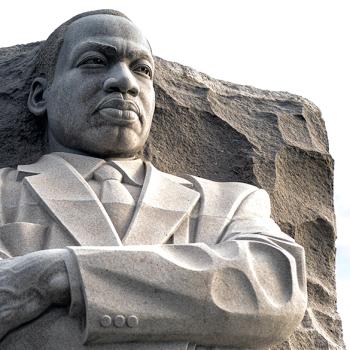Ah, the White Savior Complex. Picture this: Westerners, often dripping in religious zeal, descending upon “less fortunate” countries to “save” them. The roots of this mentality can be traced back to colonial times, where the mantra of “civilizing the savages” went hand-in-hand with expanding empires. It’s an age-old narrative, almost cinematic, but the only thing being saved is the savior’s ego.
The Case of Renee Bach: A Cautionary Tale
Renee Bach, an American with zero medical training, decided she was called by God to be Uganda’s Florence Nightingale. She ran a center for malnourished Ugandan kids, and the result? Over 100 children died under her watch. The audacity isn’t just in her actions but in her blatant disregard for the lives she was toying with. For the full scoop, check out the new HBO docuseries, Savior Complex, a fascinating and tragic look into the situation. There’s also this deep dive at NPR and an update.
Counter-Narratives: The Antidote to White Saviorism
Now, not every Westerner who travels abroad to “help” ends up causing harm. Take Howard Baskerville, a 22-year-old Christian missionary in Iran circa 1907. Unlike Bach, Baskerville immersed himself in the local culture of Tabriz. He listened, understood their struggles, and even gave up his American passport to support the Persian Constitutional Revolution. So, how did Baskerville avoid becoming another cautionary tale? He was conscious of his choices and willing to challenge, rather than uphold, white dominance.
Baskerville sets an example for how privileged individuals can make a positive impact—be it volunteer efforts post-disaster, humanitarian aid, or advocating for the oppressed—without tumbling into the pitfall of the White Savior Complex. He listened before he acted, connected the dots of systemic issues, knew where to assign blame, sacrificed his privilege, and was willing to be saved himself. In a profound twist, Baskerville, who arrived in Tabriz to offer salvation, found himself transformed by the local understanding of faith as action—ultimately allowing Persians to teach him the essence of being both American and Christian.
The Unholy Trinity: Evangelism, White Savior Complex, and Misguided Intentions
Baskerville offers a stark contrast to today’s brand of American evangelism, which seems to sprinkle colonialism over the teachings of Jesus. While Jesus healed without asking for religious commitment first, modern evangelists often tote along a side of American exceptionalism with their Bible. The sad truth is that spreading the Gospel and “saving souls” takes precedence over the presumed good work being carried out. It’s as if today’s Good Samaritan would first ask you to like and follow him on social media before offering any aid.
The Policy Angle: Beyond Band-Aids
The White Savior Industrial Complex isn’t some lone-wolf operation; it’s a systemic issue often backed by governmental and non-profit policies. What set Baskerville apart was his understanding that the problem in Iran was institutional—the monarchy itself, not some isolated tyrant. Organizations must recognize the systemic powers behind humanitarian issues and strive for policies that do more than slap Band-Aids on bullet wounds. They need to be willing to challenge these systems, rather than merely ameliorate their effects. This is where policy comes into play. In short, empower communities; and provide temporary relief.
The Localized Version: Not Just an Overseas Problem
The white savior isn’t an exotic import; it’s a homegrown product too. Here in the States, well-intentioned folks, armed with their preconceived notions, waltz into communities they know nothing about, aiming to “fix” problems they haven’t even taken the time to understand. Take, for instance, the phenomenon of gentrification. Affluent individuals move into lower-income neighborhoods with the intent of “cleaning up” the place, often pushing out longtime residents and altering the community’s cultural fabric. Or consider volunteer groups descending on reservations or inner-city schools with a ‘missionary’ zeal, assuming they hold the keys to educational reform. In their quest to “fix,” they often exacerbate existing issues. They might as well try putting out a forest fire with a squirt gun.
The Community Disconnect: When “Helping” Hurts
As easy as it is to vilify the Renee Bachs of this world, let’s not forget about the everyday heroes in their minds, whose actions often go unquestioned. It’s time to ask: are we consulting the communities we’re “helping”? Because assuming we know better is the height of privilege. It’s not enough to assume goodwill validates our actions; intentions don’t equal impact. When we don’t consult the communities we aim to assist, we perpetuate the same harmful dynamics we claim to fight against.
The Way Forward: A Call to Self-Reflection
If the aim is to truly follow the teachings of Jesus—or simply make the world a better place—the way forward is through genuine self-reflection and embracing servant leadership. Remember, Jesus washed the feet of his disciples, teaching that true leadership is rooted in serving others. This spiritual cornerstone can act as a counterbalance to the White Savior Complex, grounding our actions in humility and empathy rather than ego and presumption.
So how do you make self-reflection and servant leadership concrete in your life? Start by attending community meetings to get a firsthand sense of the issues at hand. Engage in educational sessions or workshops that challenge your preconceptions and biases. Go beyond passive listening to active involvement in communities, adopting a posture of learning and service rather than dictating solutions.
This involves listening more than lecturing, understanding rather than assuming, and, above all, shedding the savior complex at the door. It means asking ‘how can I serve?’ rather than ‘how can I fix this?’ By replacing the impulse to ‘save’ with the willingness to serve, we transition from a paradigm of dominance to one of partnership and empowerment.
Make an ongoing commitment to be aware and self-critical of your assumptions and actions. This isn’t a ‘one-and-done.’ It’s a lifelong process that requires consistent education, inclusion, empathy, and action. And hey, if you’re following in the footsteps of a carpenter from Nazareth, remember that he wasn’t about just talking the talk; he was all about walking the walk.
For more Snarky Faith check out the podcast:















